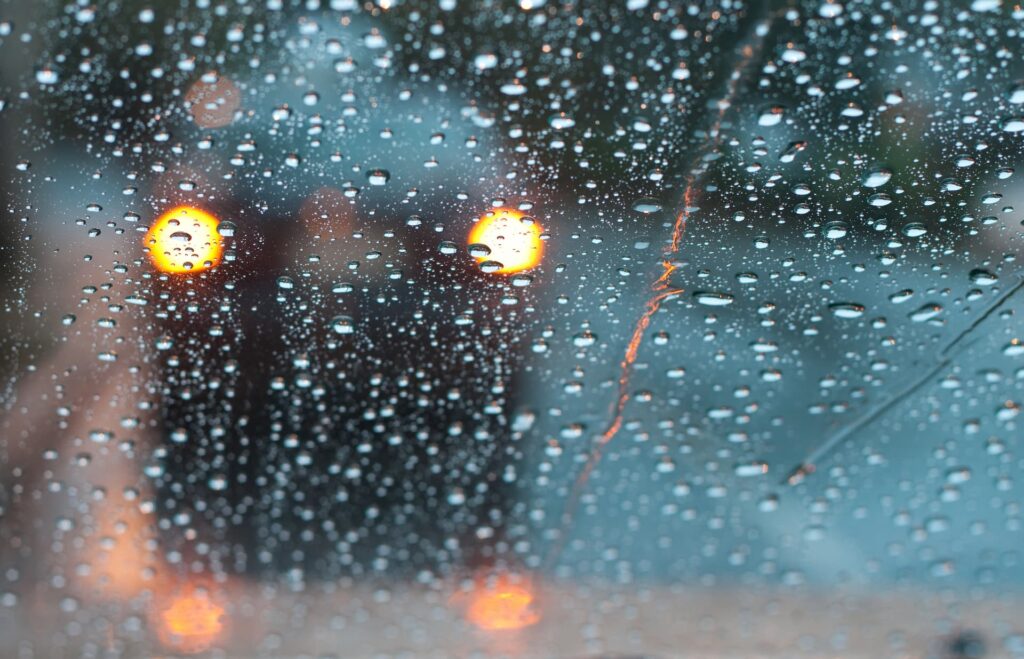As all Florida drivers know, the beautiful sunny blue skies can morph into blinding rain, thunderous skies, lightning, and wind in a matter of minutes. When the visibility becomes virtually nonexistent as you’re speeding down the highway, you notice some drivers pull over completely, others may stop under an overpass, but most will keep on driving. Those who keep on driving may use their hazard lights to be more obvious to other drivers; others will not because they heard it was against the law.
The auto service professionals at Cassels Garage, the superior company for auto repair in Melbourne, FL, will clear up that question once-and-for all and provide critical driving tips when the weather turns from delightful to dangerous.
Should you turn your hazard lights on in the rain?
As of July 1, 2021, Florida drivers can legally use their hazard lights in the rain. The specifics of the law states that drivers can activate their flashing lights when conditions create “extreme low visibility” while they are on roads with speed limits at or above 55 mph. Those weather conditions include heavy rain, fog, or smoke.
Thanks to a new bill signed into law by Governor Ron DeSantis. Before July 1, those drivers who thought using hazard lights during a downpour was illegal were correct. According to the Florida Highway Patrol (FHP), the Sunshine State law no longer prohibits driving with flashing hazard lights in certain severe weather conditions on certain roadways.
According to AAA, Florida was one of the last states to implement this law as more than 40 other states already have.
Why was driving with hazard lights ever illegal?
It seems logical that drivers would do whatever it takes to be visible to other drivers in extremely severe weather. If you’re traveling on the interstate at 70 mph and 10 miles from the next exit, it only makes sense to want to be seen, right?
Fox13 Tampa Bay explains it like this: “Under the previous law, hazard lights were only meant for when your car has broken down or stopped on the side of the road. The only time it can be used while driving your vehicle is if you are in a funeral procession. It would then be a signal to other drivers not to drive in between or interfere with the procession. For years and years, state transportation officials took to social media, media outlets and used FDOT message boards to remind drivers not to use those flashing lights in the rain. It wasn’t always followed.”
Still FHP says that if drivers feel unsafe while driving in severe weather the safest option may be to pull over to the side of the road, or off the road, until conditions improve.
Here are some tips for safe driving during dangerous driving conditions
- Turn lights and wipers on. Florida law requires that if a vehicle’s wipers are in use, headlights must be on. To ensure high visibility, headlights should be clean and clear and wipers should be replaced at least once a year.
- Slow down, be patient, and stay alert. Keep a safe stopping distance between vehicles and avoid passing and/or changing lanes. Wet pavement can result in skidding and hydroplaning. Use the right edge of the road or painted road markings as a guide.
- Turn around; don’t drown. Never drive through flooded areas. The area of roadway beneath the water may be washed out or may conceal debris or even power lines. It is nearly impossible to gauge the true depth of standing or moving water when you are driving.
- Never stop on the road. Doing so may result in a chain-reaction crash. If you must pull off the road, signal first, and carefully pull off as far as possible. After pulling completely off the road, then turn on hazard lights.
- Never text and drive; never drive while impaired; never drive on compromised tires; always wear a seatbelt.
Driving in severe weather conditions can significantly increase the potential for a dangerous situation. Sometimes the best decision drivers can make is to stay put until the storm passes.
Prepare your vehicle in advance for a safe driving experience during severe weather
If you take the precautions to prepare your vehicle now, you may drastically reduce the chances for costly repairs later, or even worse, a weather-related tragedy on the highway. Come by Cassels Garage of Melbourne, FL for a check of your hazard lights—and all lights on your vehicle, tires, wipers, and anything else you may need to give you peace of mind and sense of safety on the road. We can take car repair service and maintenance off your hands hassle free and affordably before and after the storm.





